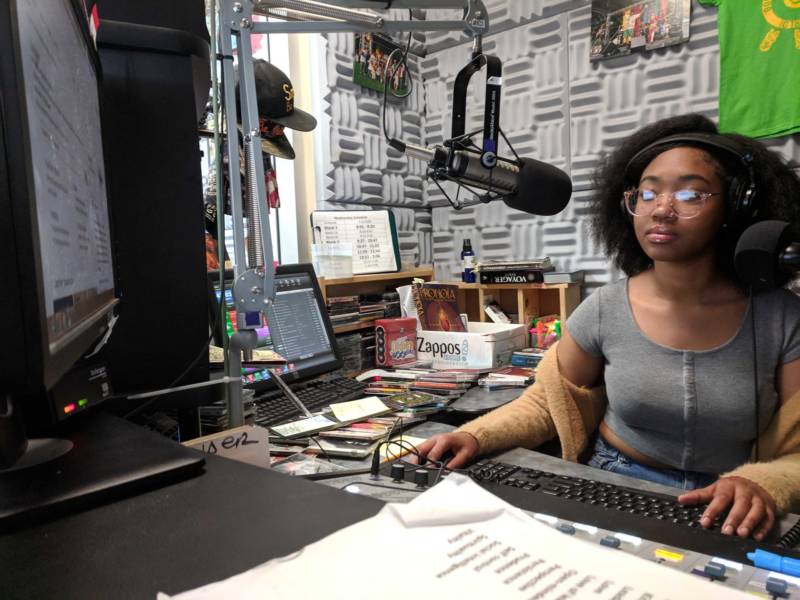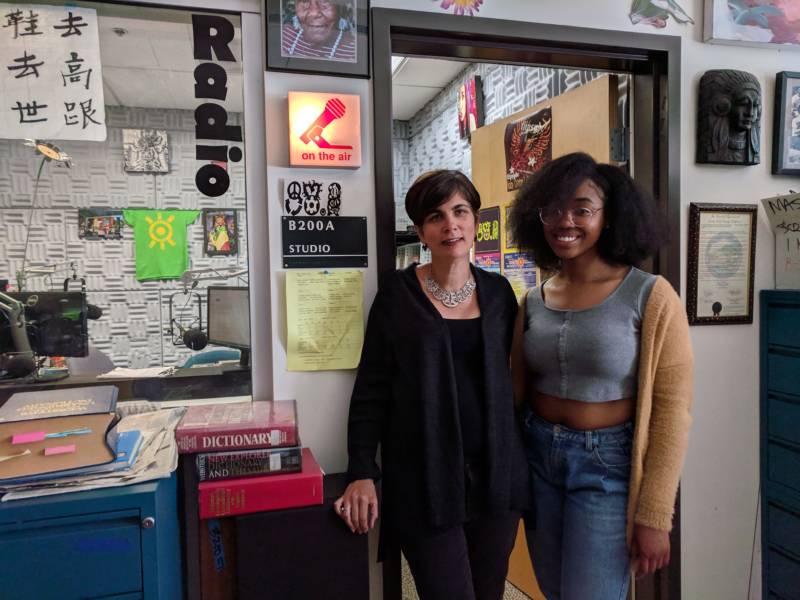The following story was produced for Youth Takeover week at KQED.
My natural hair journey has been long and tiring. For a long time, I wasn't confident with my hair and tried my best to keep it from its natural state.

The following story was produced for Youth Takeover week at KQED.
My natural hair journey has been long and tiring. For a long time, I wasn't confident with my hair and tried my best to keep it from its natural state.
I grew up around pretty and conventional white girls. Girls with hair that stayed straight and perfect, at least it seemed to me, in any type of weather, and never got ridiculously big like a lion's mane. It wasn’t until high school when I actually realized how beautiful this thing I hated about myself truly was.
As a freshman in high school I saw black women older than me who wore their Afros, curls and kinks with pride, and picked it out to its fullest extent. Since that day, I have taken on the title of "naturalista," and instead of letting my hair wear me, I wear it.

Natural hair is only seen as taboo by non-black cultures. Even though natural hair is only a thing African-American women deal with, it’s still necessary to educate people from other ethnicities about, just to provide more perspective. It might even allow them to better understand us and the oppression we've faced.
Confidence with wearing natural hair is relevant and affects all African-American women, especially those in diverse environments like where I go to school, in El Cerrito. If it was talked about more, maybe it would encourage black people, especially young women, to be more confident about something that can make us feel like outcasts.
Autumn Sivadd, a senior at El Cerrito High School, talked about her essay as she co-hosted The California Report Magazine's Youth Takeover edition with Sasha Khokha. They discussed legislation proposed by state Sen. Holly Mitchell, which would prohibit discrimination against natural hairstyles at schools and workplaces:
"I feel like Sen. Holly Mitchell is a great representation for how us as African American women feel and have been feeling for a long time," said Sivadd. "She brought light to something that’s very important to me and everybody else that I know who wears their natural hair. And as a 17-year-old girl who’s going to be in the workplace very soon, I feel like this ... really gives me a head start."

To learn more about how we use your information, please read our privacy policy.